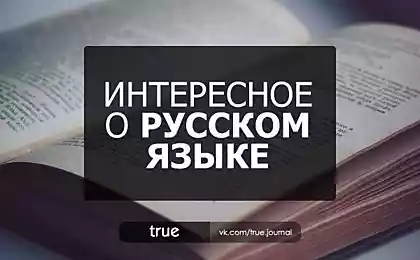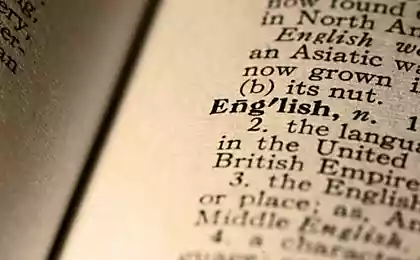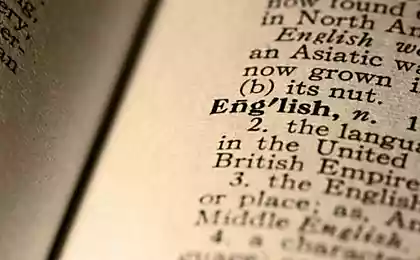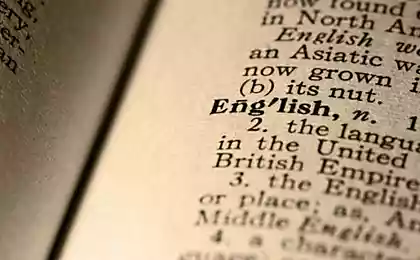1887
What do the bull and the bees. Facts about Russian language
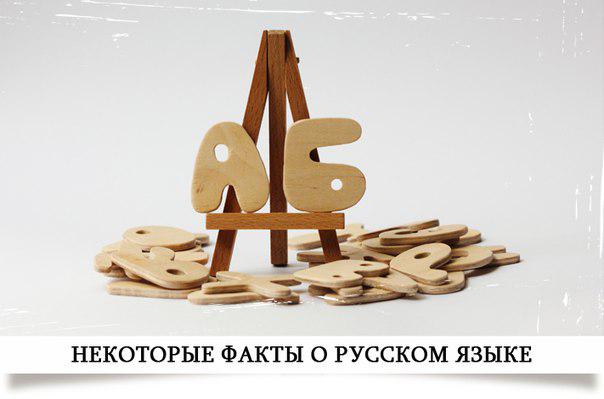
The word "bull" and "Bee" - the same root. And other interesting facts about the Russian language.
Contrary to popular belief in the Russian language is not one word with three "e" in a row, but two. And words nachinayyuschihsya with the letter "d" in our language as much as 74. A Guinness Book of Records recorded the word length is 35 characters.
Most of the words with the letter "F" in Russian - borrowed. Pushkin was proud of the fact that in "The Tale of Tsar Saltan" was only one word with the letter "f" - navy.
In the Russian language there are only 74 words beginning with the letter "J". But most of us remember only "iodine, Yogi" and the city "Yoshkar-Ola».
In the Russian language there are words to "Y". This is the name of Russian cities and rivers: Ygyatta River, Yllymah, Ynahsyt, Ynykchansky, Ytyk-Kyuyol.
The only words in the Russian language with the three letters "e" in a row - this is a long-necked (and other -sheee for example, curvilinear, short) and "zmeeed."
In the Russian language there is a word of the language with a unique prefix KO - corner.
The only word of the Russian language, which has no root - remove. It is believed that this word so-called zero root, located in alternation with the root -im- (CON im amb). Earlier, about the XVII century, the verb vynyat looked like, and there was a material root, the same as in the lift, embrace, understand (sr.snimat, embrace, understand), but then root -nya- was reconceived as a suffix - zero (as in stick, blow).
The only monosyllabic adjective in Russian - is "evil».
In the Russian language there is a word for a language with unique prefixes u - total and total a- and - perhaps (obsolete. And eighth "and eighth unlucky"), formed by the conjunction "and" and "and».
The word "bull" and "Bee" - the same root. In the works of ancient literature the word "bee" was written as "bchela." Vocalic b / s explains the origin of the two sounds from the same Indo-European sound U. If we recall the dialect verb Bucha, a value of "roaring, buzzing, buzzing" and etymologically related words bee, insect and bull, then it becomes clear what was the total value of these words.
Dahl proposed to replace the foreign word "atmosphere" at the Russian "kolozemitsa" or "mirokolitsa».
To the XIV century in Russia all indecent words called "ridiculous verbs».
In the Guinness Book of Records in 1993 the longest word of the Russian language is called "rentgenoelektrokardiograficheskogo" in the 2003 edition "prevysokomnogorassmotritelstvuyuschy».
In grammar dictionary of the Russian language AA Zaliznyak 2003 edition is the longest (in letters) a household word in the dictionary form token - the adjective "private business". Consists of 25 letters.
Longest verbs - "re-examine", "substantsionalizirovatsya" and "internationalize" (all - 24 letters, word forms and -uyuschimisya -vshis to 25 letters).
Longest nouns - "misanthropy" and "Excellency" (24 letters, word form -s - 26 letters, however, "misanthropy" is almost never used in the plural. H.).
Longest animate nouns - "odinnadtsatiklassnitsa" and "manageress" (21 letter word forms -s - to 23 letters).
The longest tongue, latching dictionary - "unsatisfactory" (19 letters). However, we must bear in mind that the vast majority of qualitative adjectives on th / matched adverbs are formed on the o / e, is not always recorded by the dictionary.
The longest interjection included in the Grammar Dictionary - "FizKult-hi" (15 or 14 characters, depending on the status of the hyphen).
The word "respectively" is the longest and the longest pretext Union simultaneously. It consists of 14 letters. The longest particle "exclusively" with the letter short.
In Russian there is the so-called defective verb. Sometimes the verb does not have any form, and this is due to the laws of euphony. For example: "win". He wins, you win, I ... will win? will run? defeated? Philologists suggest using replacement design "I win" or "going to the winner." Since the form of the first person singular is absent, the verb is insufficient.
English for successful mastering the difficult phrase "I love you" are mnemonics «Yellow-blue bus».
Pole built a musical instrument, designed by Leonardo da Vinci (+ video version)
In short, I am a mathematician, not a philologist














